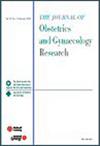Systemic effect of different physiological parameter associated with mirror syndrome
Abstract
Aim
This review aims to delve into the systemic repercussions of various physiological indicators interrelated in mirror syndrome while an individual is pregnant. This review explores the role of pro-inflammatory cytokines and imbalances in angiogenic factors in disrupting placental function and contributing to endothelial damage in mirror syndrome. It also discusses how these physiological disturbances may affect maternal and fetal health.
Methods
The narrative literature evaluation comprised papers from the PubMed and Google Scholar databases. We conducted a comprehensive search on the following keyword: “Mirror Syndrome,” “triple edema,” “fetal hydrops,” “endotoxemia” etc. And we can find more than 76 research articles and 26 of them is notable case studies reported on this topic.
Results
Mirror syndrome causes systemic effects, including placental insufficiency, endothelial damage, and disrupted angiogenic factors like PlGF and VEGF, leading to hypertension, edema, and renal failure in pregnant women. In 26 case studies, we found that mirror syndrome is classified into rhesus isoimmunization 23.07%; twin pregnancies 38.46%; viral infections 19.23%; and other causes such as tumors and congenital anomalies 19.23% noted.
Conclusion
Early detection and management of mirror syndrome are crucial for maternal and fetal health. Blood pressure and health issues should be monitored on a regular basis, and delivery may be necessary depending on the circumstances. Understanding these aspects is key to delivering optimal care and improving outcomes for mothers and babies.





 求助内容:
求助内容: 应助结果提醒方式:
应助结果提醒方式:


